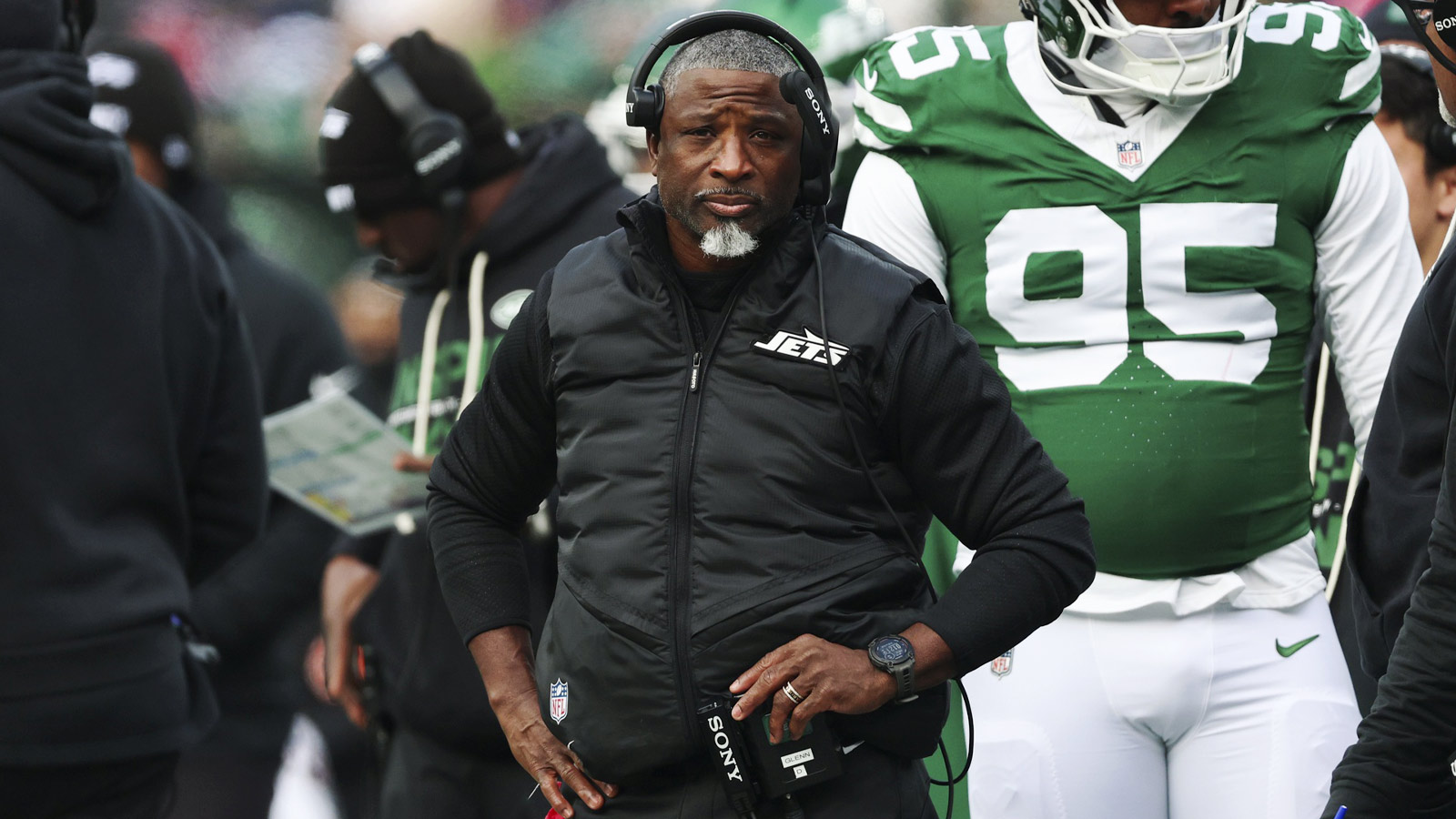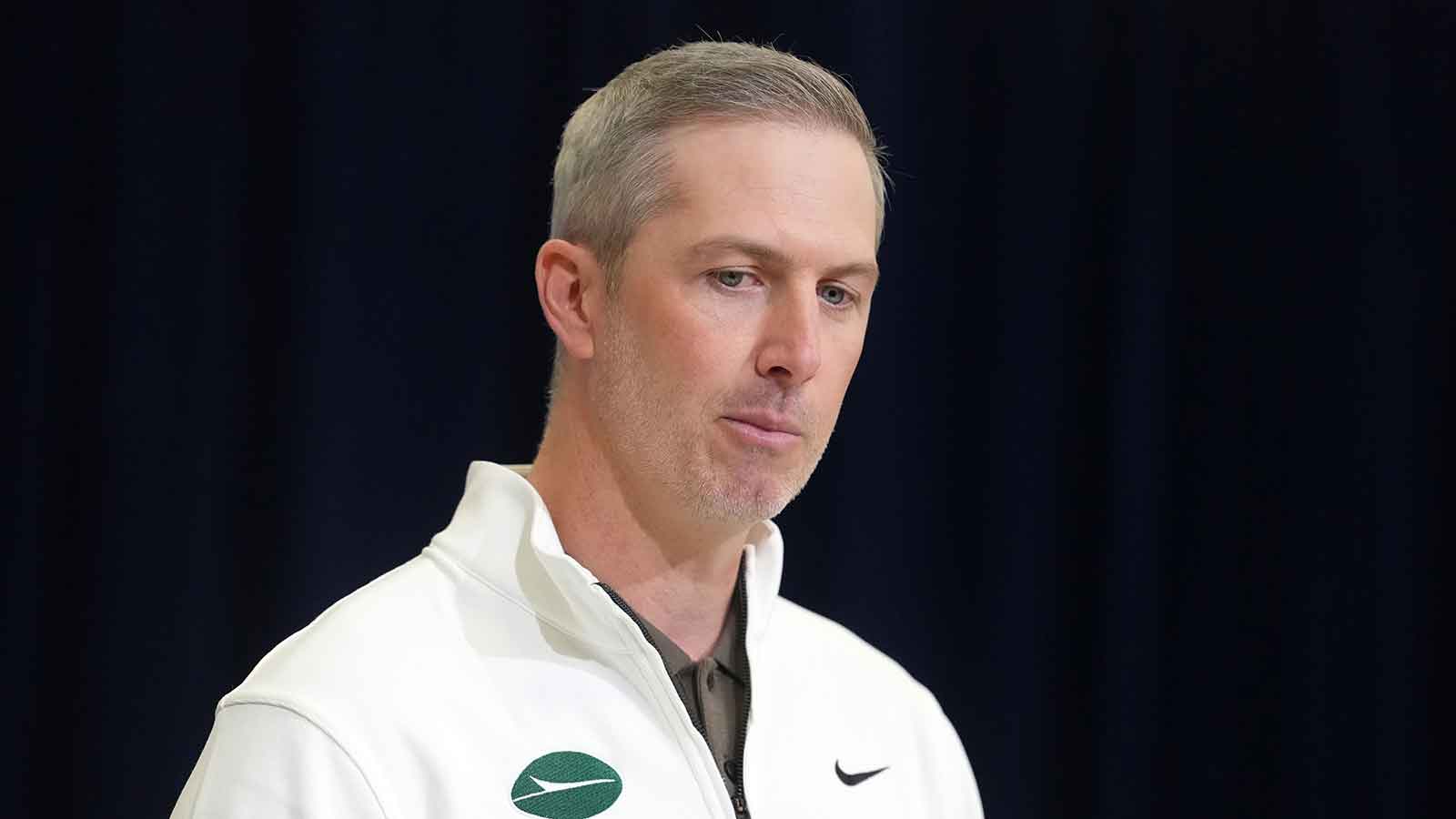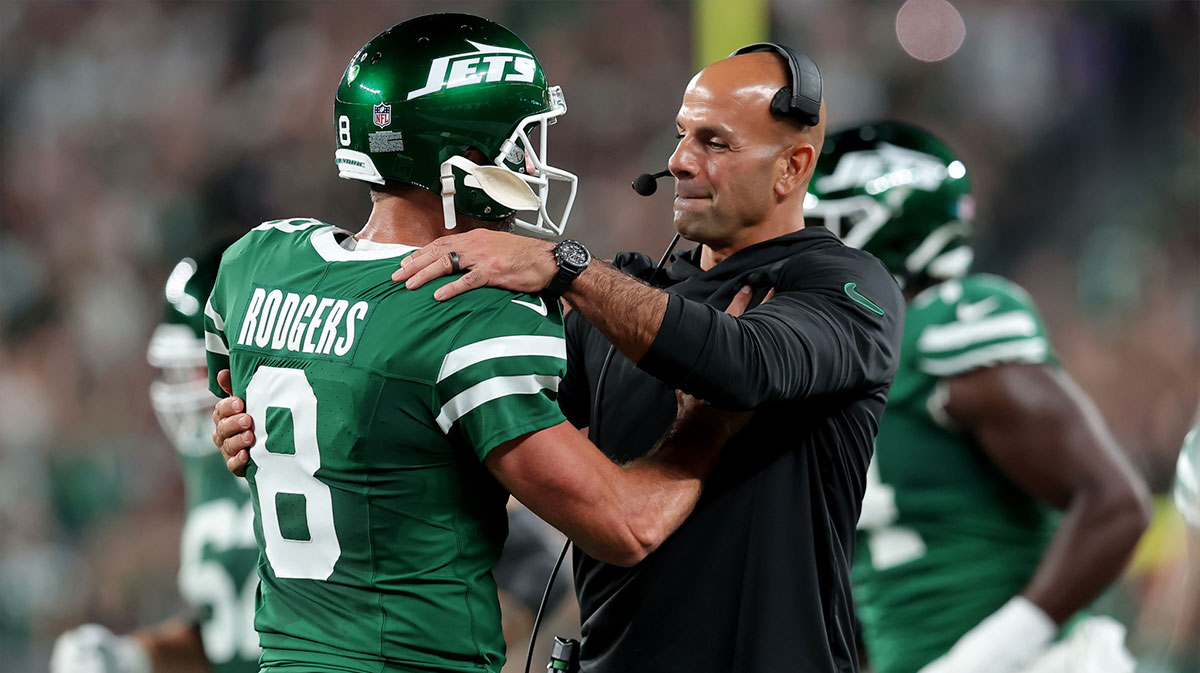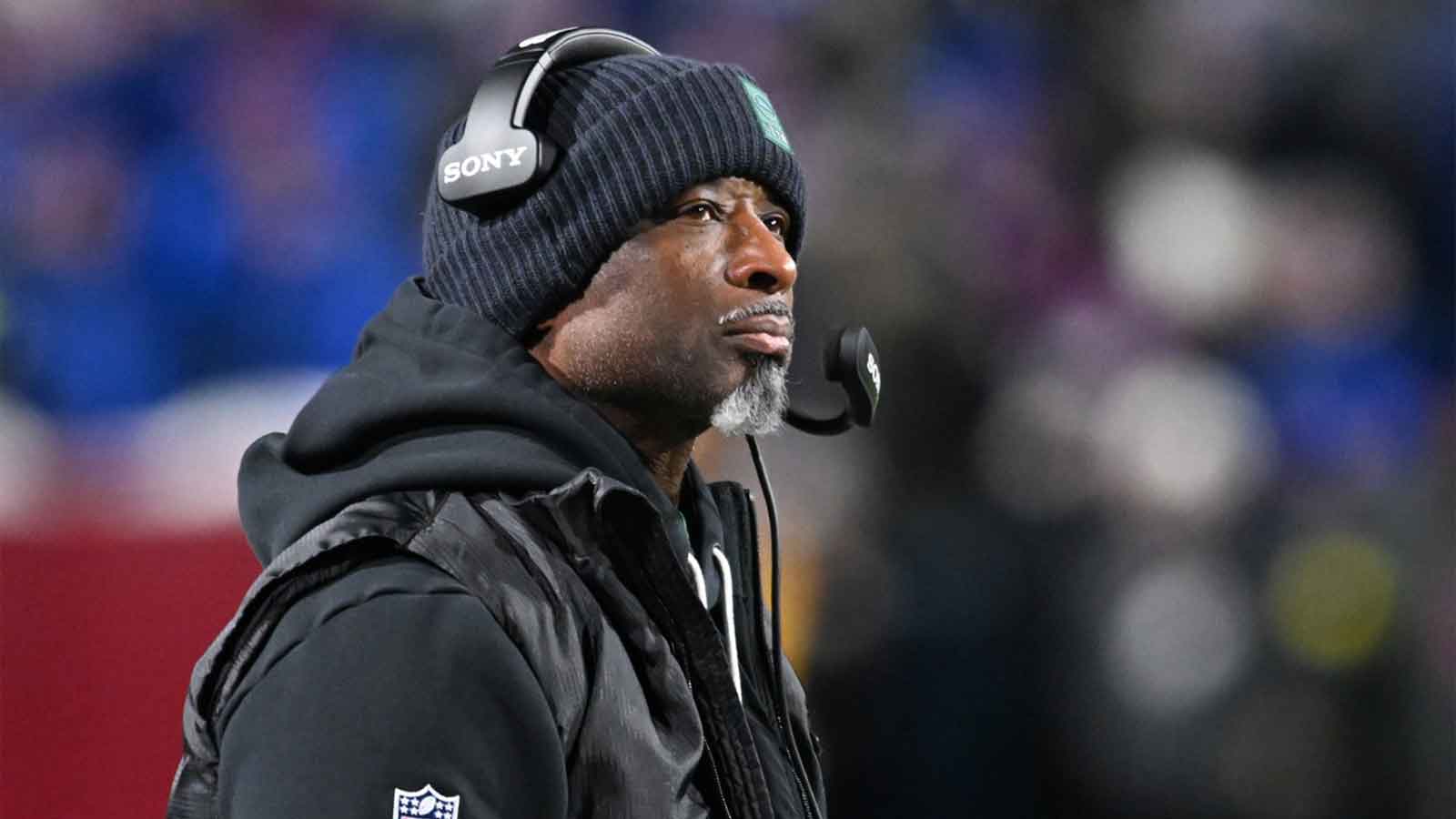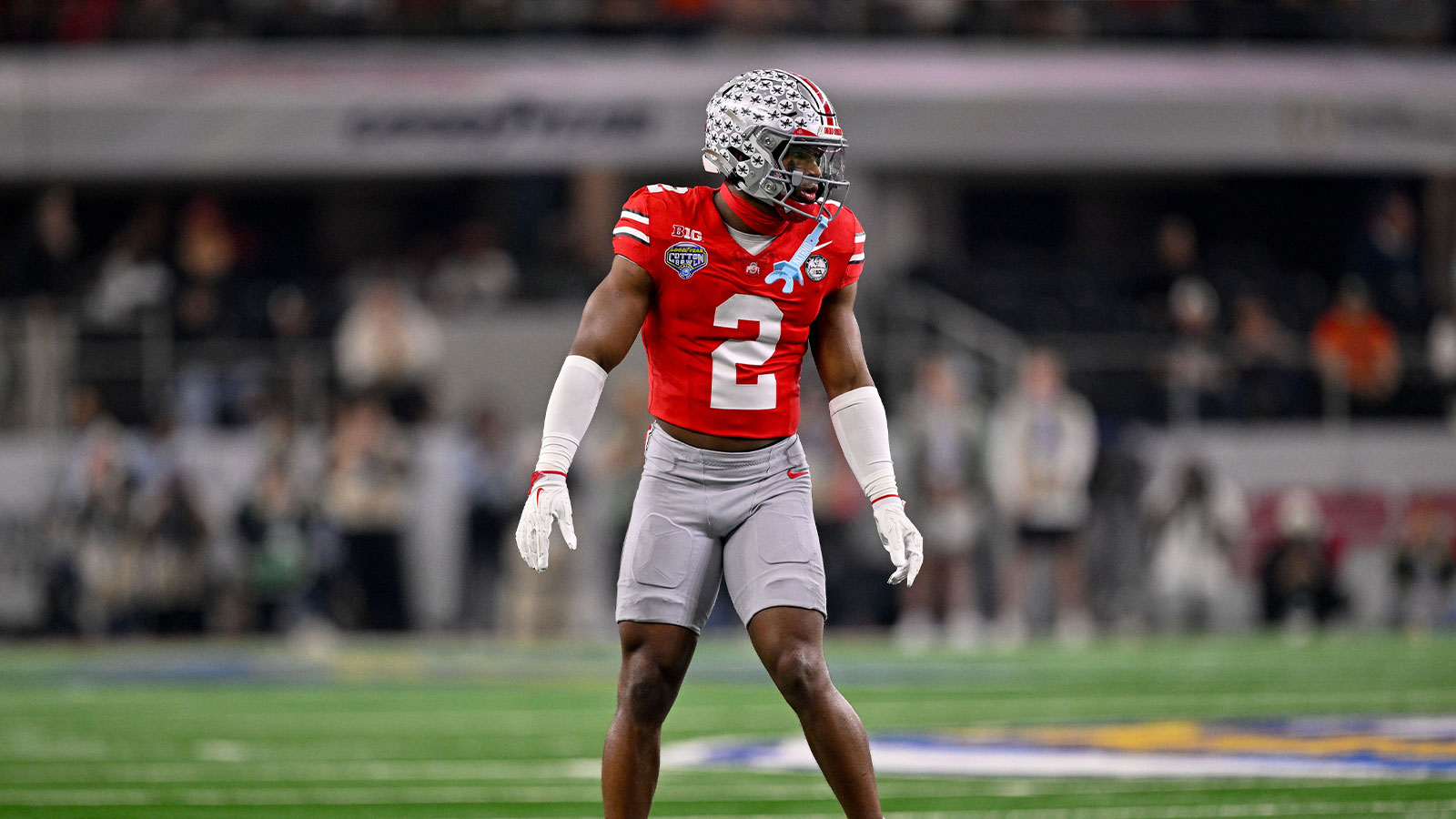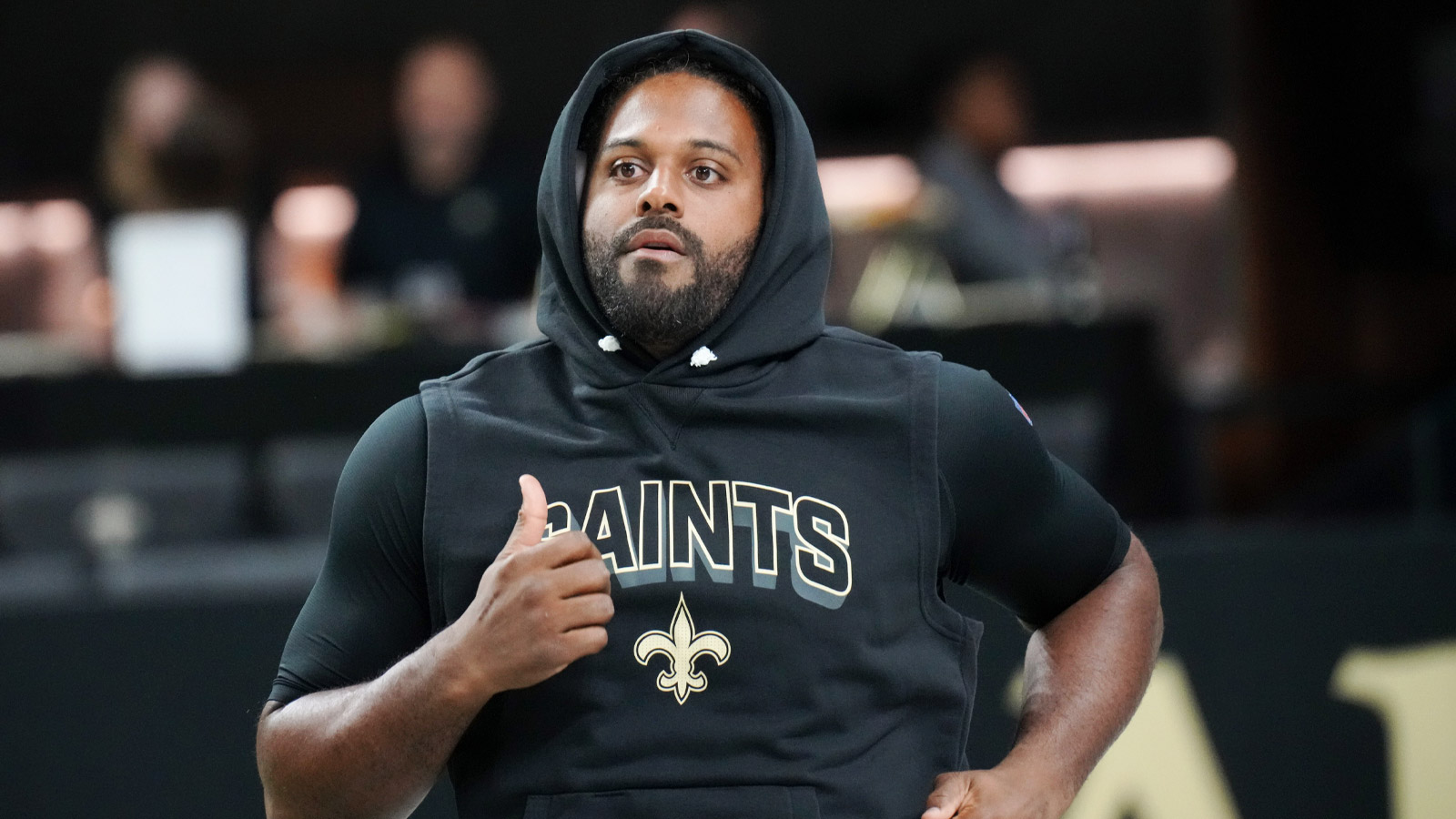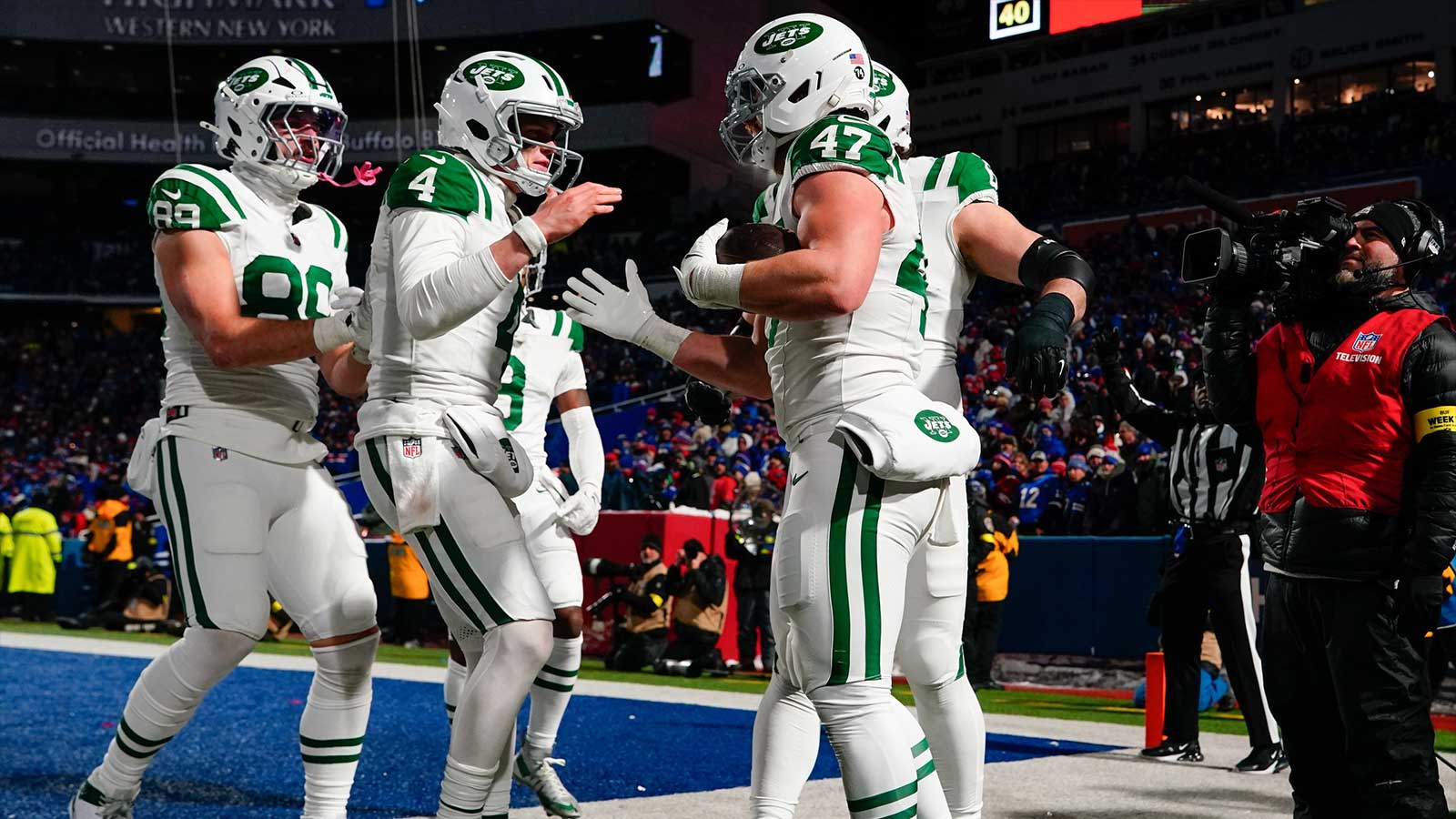The New York Jets followed a gutting Week 1 loss with an even more humiliating setback. They fell 30-10 to the Buffalo Bills this past weekend. Buffalo’s punishing ground game set the tone early, and New York’s offense never found its footing. The Jets didn’t reach 100 total yards until the fourth quarter. They also lost quarterback Justin Fields to a concussion evaluation after an abysmal performance.
It was a crushing defeat for a team hoping to rebound under first-year head coach Aaron Glenn. After Fields showed promise in Week 1 against Pittsburgh, completing 16 of 22 passes for 218 yards, his encore was disastrous. Against Buffalo, he went 3-for-11 for 27 yards with a costly first-quarter fumble before exiting in the fourth. The Jets look as unprepared as they did last season. The optimism from Week 1 seems to have already evaporated.
Here we'll try to look at and discuss why Week 2 disaster vs. Bills proves Jets' Week 1 offensive explosion was a fluke.
Feel for Justin Fields
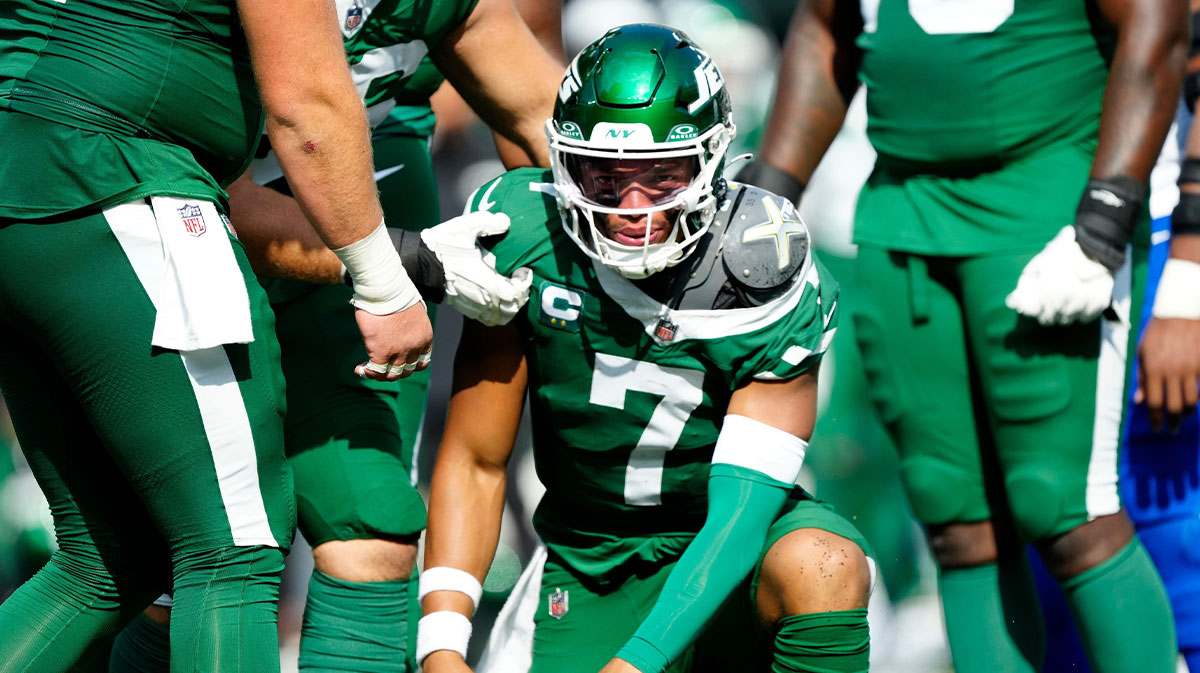
Fields’ performance in Buffalo bore no resemblance to the promise he showed against the Steelers a week earlier. His 39.6 passer rating was grim, but the struggles went deeper than numbers. He never found a rhythm throwing the ball and offered little threat with his legs outside of a single 27-yard run. He also coughed up a turnover that shifted momentum early. From the opening drive, the offense looked disjointed. Fields’ early exit highlighted just how unstable the situation has become.
This may be the story of his season: bursts of talent offset by frustrating inconsistency. On his best days, Fields flashes the dynamic ability that once made him a first-round pick. On his worst, he looks like a quarterback simply trying to hang on in his third stop in three years. For the Jets, his ceiling is their only path to relevance. That said, the volatility of his play makes it nearly impossible to trust him as the steady leader this team desperately needs.
A coaching staff already under fire
Glenn also did himself no favors in the aftermath. Facing reporters after the loss, he answered three consecutive questions with the same refrain.
“I need to look at the tape.”
That lack of insight reflected a coach struggling to process what had unfolded. Glenn later admitted he shared responsibility for the team’s lack of preparation. It's a concession that may ring hollow if these collapses continue.
Offensive coordinator Tanner Engstrand fared no better. His game plan was vanilla and entirely ineffective against Buffalo’s defense. To be fair, Fields offered little help. Still, the lack of adjustments was glaring. The Jets looked unprepared for Buffalo’s physicality and failed to counter once the Bills seized control. It was a total system failure. While, Engstrand deserves criticism, Glenn is the one tasked with setting the tone.
Offense vanishes in critical moments
New York’s offensive ineptitude was startling. By the time Fields left in the fourth quarter, the Jets were 0-for-8 on third downs. They had been outgained 394 to 100. Drives stalled repeatedly, with little creativity in the run game and no threat downfield.
To make matters worse, Fields’ struggles were compounded by a lack of discipline. A first-quarter fumble gave Buffalo prime field position. His interception-worthy throws also showed a quarterback pressing rather than executing. The Jets’ Week 1 offensive outburst suddenly feels like an anomaly, not a building block.
Defensive breakdowns pile on the misery
If the offense was incompetent, the defense wasn’t much better. Missed tackles and poor angles haunted the Jets all afternoon. Buffalo quarterback Josh Allen ripped off a 40-yard run, while running back James Cook scored on a 44-yard dash in the first half. Those explosive plays, coupled with backbreaking mistakes, defined the game.
The most egregious error came on a third down in the opening quarter. That's when defensive end Micheal Clemons committed a roughing the passer penalty that extended a Buffalo drive. Instead of forcing a punt, the series ended in a short touchdown run. Glenn has preached discipline and promised accountability. However, if he’s serious, several defenders should be worried about their jobs heading into Week 3.
Injuries make matters worse
As if the scoreboard weren’t bad enough, the Jets were ravaged by injuries. Aside from Fielda, defensive end Jermaine Johnson, safety Tony Adams, and cornerback Michael Carter II all left the game. Their departures left a defense that was already overmatched even thinner. Losing four starters in one afternoon makes an already uphill battle feel nearly insurmountable.
Injuries aren’t an excuse for a team that looked lost, but they are a compounding factor. With depth now a pressing concern, Glenn and his staff will need to make tough decisions about personnel and game plans.
Bottom line

The Jets’ Week 1 flashes of promise against the Steelers now look like fool’s gold. Against Buffalo, the offense was lifeless and the defense undisciplined. Fields’ inconsistency remains the central storyline. However, the problems run deeper, from uninspired play calling to a lack of composure in critical situations.
New York’s 0-2 start under Glenn feels alarmingly familiar. Unless something changes quickly, the 2025 Jets may prove indistinguishable from last year’s version. Right now this is a team prone to mistakes, unprepared for the moment, and incapable of competing with the AFC’s elite.









